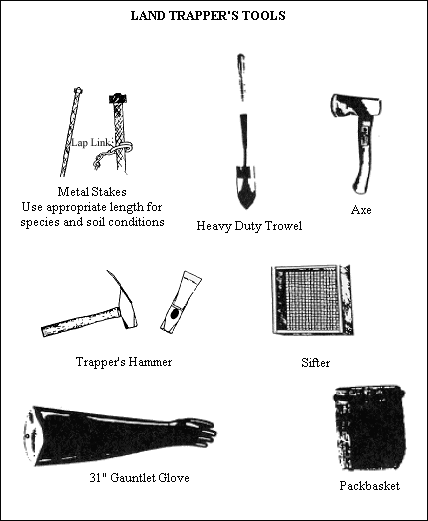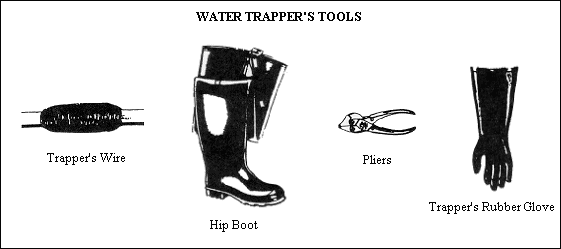North Dakota Furtakers Educational Manual
Trap Preparation
Factory condition traps need to be cleaned and processed before dyeing. To get the oil and grease off new traps you
need to boil them in a large container filled with water and baking soda. Boil the traps for 30 minutes to 1 hour then
rinse them off with clean water. Leave the traps outside until they get a light coat of rust on them at which time they
are ready for dyeing. The rust will help the dye adhere to the metal. For dyeing traps fill a barrel with sufficient water
to cover the traps. Add trap dye as recommended on the package. Trap dye can be obtained from a trapping supply
house and usually 1 pound of dye is used for each 4 to 5 gallons of water. The dye water is brought to a boil and
allowed to simmer for an hour or so. After the traps have taken a good blue-black color take out and let them air dry.
After the traps have cooled down store them where they will not come in contact with any foreign odors.
Here is a list of other tools for the land trapper. You will need stakes, a trowel or small shovel, dirt sifter, hammer,
pack basket or pail, hatchet and a good pair of gloves.

For the water trapper the list is almost the same, but a few extra items such as hip boots or waders, rubber gloves,
wire, pliers and a retrieving hook. An ice cutter may be needed as well.

Next you will need bait and lure to attract the animal to your set. A beginning trapper is always better off if he buys
his bait and lure from a reputable source. There are many good brands of bait and lure on the market. Try the
different lures until you find what works best for you and your area.
Previous Section -- Traps and Equipment
Return to Contents
Next Section -- Mink


